|
|
The UK’s imminent departure from the EU (European Union) has left businesses across Europe struggling to understand how this change will affect them. For WordPress theme and plugin businesses, it makes EU VAT collection and payment even more complex than it already is.
If you’re accounting for VAT on your own, you may be dealing with hundreds of invoices, difficult requirements for filing in each EU state member, and generally wasting plenty of time and money on bookkeeping. We’re here to break down the upcoming changes and explain what Brexit means for developers selling software to consumers or businesses in the EU. Let’s get started with the basics:
What’s the current state of VAT collection in the EU?
When selling digital products to consumers in Europe, you have to manage and collect the correct amounts of VAT rates from each and every one of your WordPress product sales. Your specific tax situation for the EU depends on where your customers are located and you’ll have to collect tax for each sale depending on whether you’re selling to businesses or consumers. Here are the different possibilities:
If your WordPress business is based INSIDE the EU:
- You must charge local VAT from businesses and consumers in your country
- You do not need to charge VAT from other businesses based in another EU country. They will account for the tax, in what’s called a ‘reverse-charge mechanism’. That said, to exempt a business from VAT you’ll have to collect, validate, and store their VAT number as a proof in case of an audit.
- You must charge VAT from consumers based in another EU country, according to their local VAT rate.
- For example: if your business is in Spain and a client from Finland had purchased your WordPress theme – you need to charge them the correct Finnish VAT.
- You do not need to charge VAT from businesses or consumers located outside the EU.
If your WordPress business is based OUTSIDE the EU:
- You do not need to charge VAT from businesses in the EU. They will account for the tax, in what’s called a ‘reverse-charge mechanism’.
- You must charge VAT from consumers based in the EU. Each sale must be taxed differently according to the VAT rates at the consumer’s country.
Additionally, if you’re selling to consumers in the EU, but you are not a resident of a European member state, you must register a VAT MOSS (Mini One Stop Shop) in order to be able to submit regular quarterly tax reports in one EU country for your sales across Europe. We’ll describe more about how MOSS will be affected by Brexit below, as well as the effects on EU based businesses. Feel free to read more about EU VAT rules since 2015, as the rest of this article mainly focuses on the ramifications of Brexit.
I hope we haven’t lost you yet! Taxes aren’t fun for anyone…
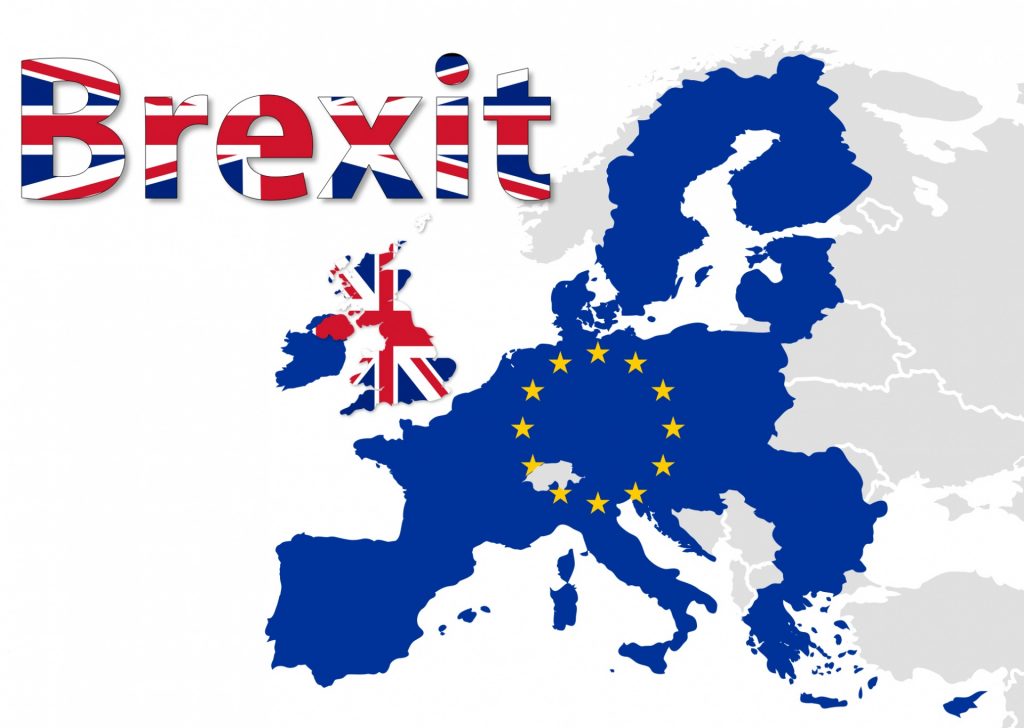
What is Brexit?
“Brexit” is Britain’s exit from the EU’s political and economic union on Friday, March 29, 2019. Preferential agreements for countries within the EU allow for the freedom of movement of goods, people, and services with a common framework of regulations and taxation. When Britain leaves the EU, all agreements will cease unless the EU and UK can negotiate a reasonable arrangement that retains some of the original benefits of the economic union, which seems increasingly less likely as the date nears. Another option is that the UK makes a bunch of side deals with individual EU countries, which may also help to retain some of the original benefits of the union. The basic fact is that meeting tax regulations will likely become even more difficult for businesses across Europe.
What does Brexit mean for WordPress theme and plugin businesses?
If you look at tax rates for each European country, you can see they vary widely (and are frequently updated). Using VAT MOSS allows you to simplify your tax payments for all European sales. Before March 29, 2019, MOSS allows you to register in one EU country (including the UK) and covers sales for all of Europe. Post-Brexit, the MOSS system will be split, and you’ll no longer be able to submit one tax return in one country for all both UK and EU sales. Software developers selling digital goods to consumers in the EU and UK will most likely have to file EU and UK taxes separately, potentially doubling the hassle of handling VAT for European customers.
Grab a free copy of our Cheat Sheet for
Selling Plugins and Themes
A growth roadmap with concise, actionable tips for every milestone of WordPress product development.

How to Prepare for Brexit
If there ends up being a “no-deal” Brexit and you’re a WordPress business based outside the UK (which is the largest European market btw) and with customers in the UK, registering for the UK VAT system will be the only way to pay taxes. To continue handling taxes in the EU no matter your location, you’ll need to register for MOSS in an EU based country (if you’re not already registered in one). This can be especially difficult if you don’t speak the language of the country where you’re registering. The European Union has posted some useful information on their website that will help you make the right decisions depending on your location. If your business is based in the EU, you’ll go with the “union scheme” and if you’re outside of the EU, you’ll go with the “non-union scheme”.
If there ends up being a “no-deal” Brexit and you’re a WordPress business with customers in the UK, registering for the UK VAT system will be the only way to pay taxes to the UK.
How Freemius Handles Taxes
When selling plugins and themes with Freemius, we become a reseller as well as the merchant of records for the sale of your product. We collect all necessary taxes from the people who purchase your products using a geolocation mechanism during checkout. Customers in the EU are automatically charged the right amount of tax based on whether they’re a business customer or individual consumer. Then, we report and pay the required taxes to the appropriate European taxation authorities via the VAT MOSS for you. We make it much easier to handle tax accounting by combining all your sales into one monthly invoice, overall saving the immense amount of time it takes to meet EU VAT requirements (even before Brexit). Here’s a GIF showing how our checkout process works:
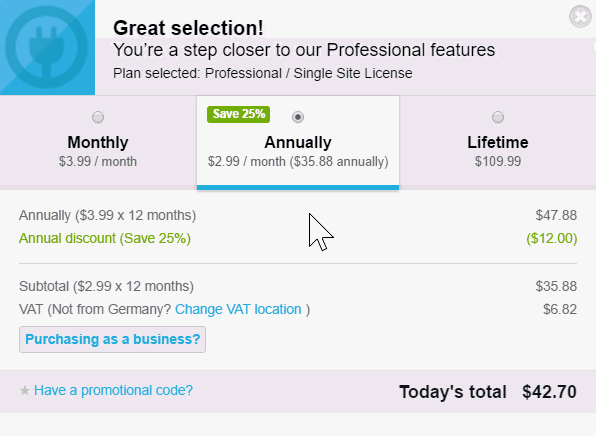
We are preparing for Brexit by constantly keeping apprised of the changing situation and registering for the MOSS in a post-Brexit EU country so we can continue to pay taxes for our sellers with customers in both the UK and EU.
Freemius is preparing for Brexit by constantly keeping apprised of the changing situation so we can continue to pay taxes for our WordPress product sellers with customers in both the UK and EU.
We work closely with many EU and UK plugin and theme businesses such as ThemeKraft, which was able to save a lot of time offloading VAT and other technical aspects of selling their plugins to Freemius, so they are well prepared for the changes Brexit will bring:
If you need any tips about EU VAT in general or the Brexit impact in particular, we opened up a “hotline” inbox exactly for that so feel free to contact us via [email protected]. Alternatively, if you are tired of dealing with the EU-VAT/Brexit taxes fiasco and looking to simplify your accounting, our team would love to schedule a quick intro Skype/Hangout to learn about your unique needs and see if Freemius can be a good fit for your plugins/themes business. If you don’t like to schedule a call you can always go ahead and register to Freemius, whatever works best for you.
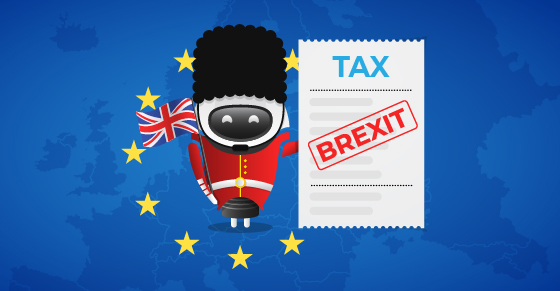






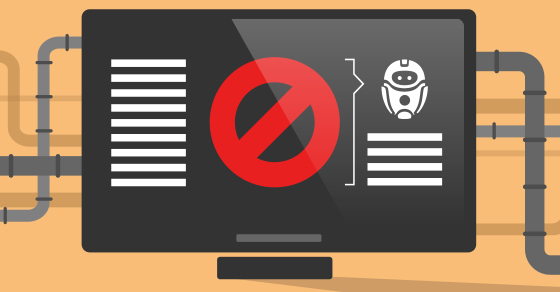
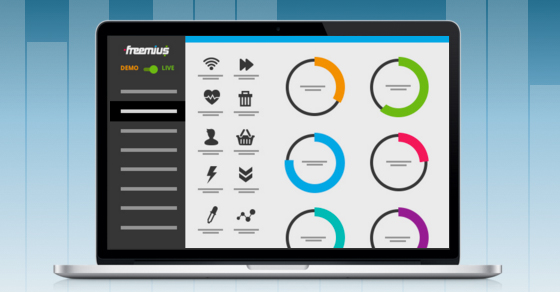

Brexit for the win!! After all, at this pace I can't imagine the EU lasting too many more decades.
Hi, this article seems to be suggesting that if you are based outside the UK after Brexit, then you still have to charge UK VAT to UK consumers. What are you basing this on? If the UK has left the EU, I was thinking that non-UK companies would no longer have to charge tax to UK consumers because the UK no longer falls under the EU VAT law. Please let me know if I'm wrong and why!